FOMO. Anxiety. Online drama. Group texts gone awry.
As technology becomes more embedded into our lives, students everywhere are facing tremendous daily challenges — socially, emotionally, and academically. School leaders are left asking, “How can we possibly get ahead of this?”
As a former school administrator, teacher, and middle school advisor, I experienced these challenges every day. I watched students make big mistakes online and felt helpless as our school played “whack-a-mole” with each behavioral issue.
I still see schools struggling with these same issues today. But I also see innovative schools overcoming myths and challenges by implementing modern SEL. They are proactively empowering students to navigate social-emotional well-being, social media, and technology positively, all because they’ve shattered these five common myths.
Myth #1: All SEL programming should launch at the beginning of the school year.
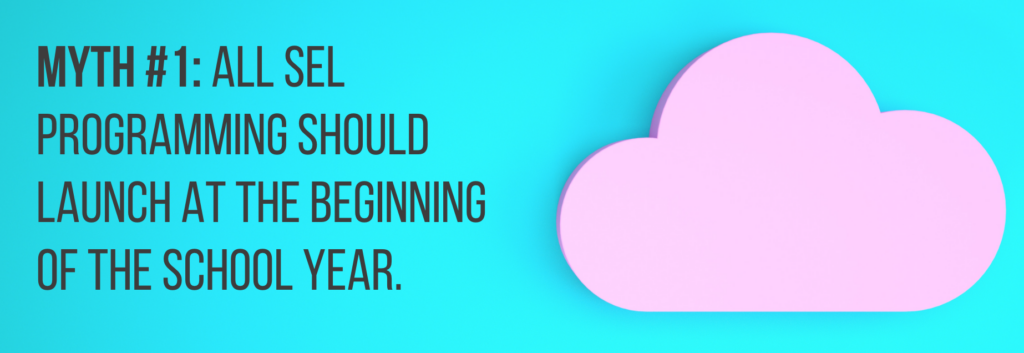
Many educators falsely assume that the only time to begin a social-emotional program is at the start of the school year. After leading hundreds of teachers through professional development, I’ve found that “layering in” new programming throughout the school year can actually be highly beneficial. When schools launch programs mid-year, teachers can take advantage of the strong relationships they’ve already built with their students. Additionally, they can leverage well-established class routines and schedules. When these relationships between students and teachers are firmly in place, along with class norms, launching a new program that connects with students can be a seamless process.
Myth #2: All digital citizenship programs should be built in-house.
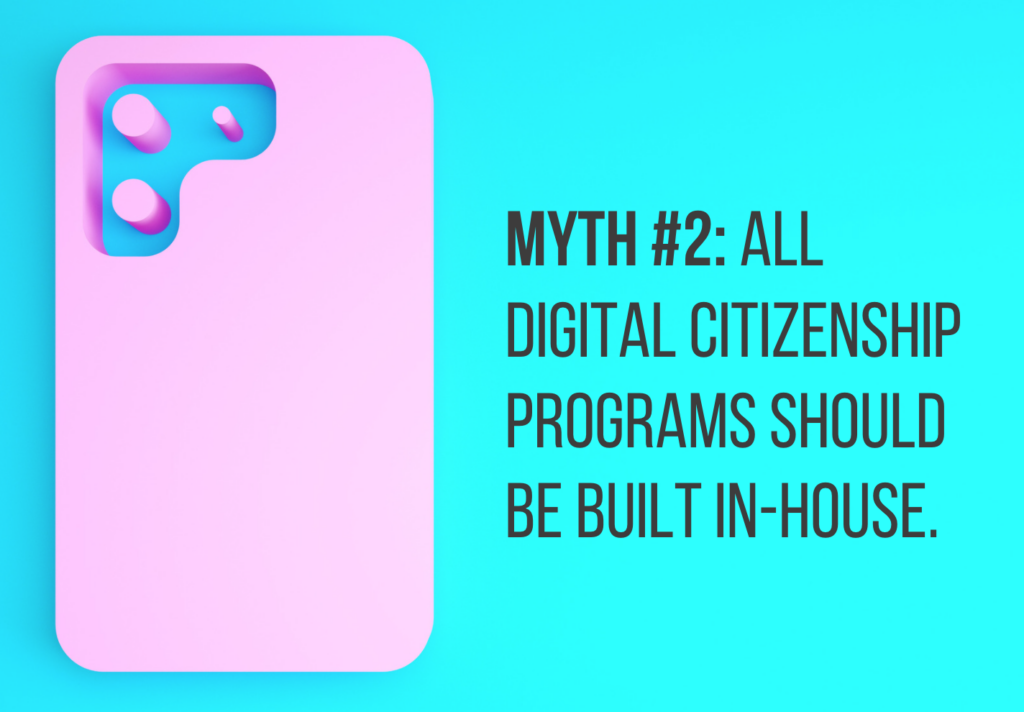
Schools are passionate and protective about their mission and culture, and rightly so. Social media needs to be a standard part of your SEL programming. But while it’s common for schools to create programs with the expertise of their teachers and leaders, social media is a different ball game. Helping students navigate social platforms from TikTok and YouTube to texting and video gaming is different than creating a math program. Many adults in school communities are not digital natives, and they lack the expertise and bandwidth to fully understand how social media behaviors and trends differ from grade to grade. Leaning on a trusted partner that stays at the cutting edge and speaks the students’ language can be a critical path to success.
Myth #3: Any teacher who educates students about social media should be an expert themselves.
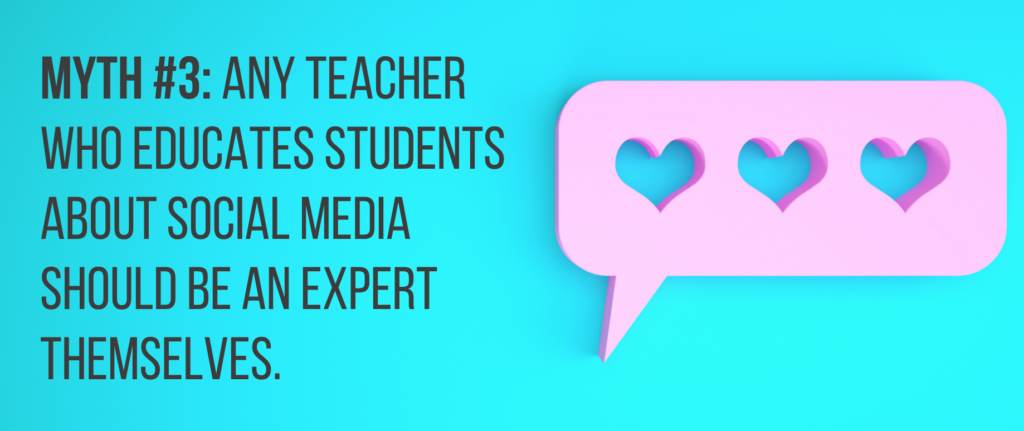
Over the past five years, our team at The Social Institute has seen tens of thousands of teachers facilitate meaningful digital citizenship conversations with students, even without knowing much about TikTok, the latest iPhone 13, or Fortnite. One successful strategy we help our partner schools implement is having students “coach up” and teach fellow peers and adults how to navigate technology positively. After all, students are ahead of the curve when it comes to social media. Plus, there is no better way to learn something than to have to teach it yourself.
Myth #4: One-off speakers that scare and lecture students are enough.
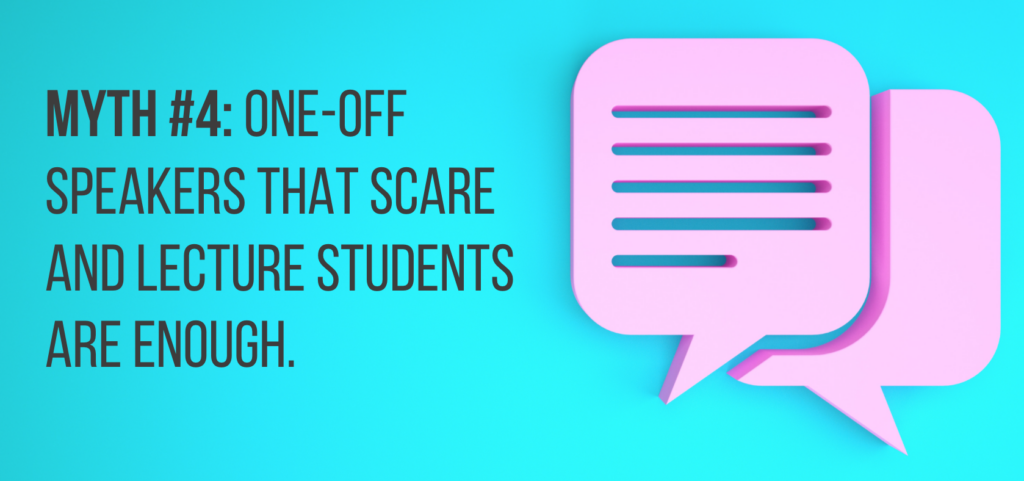
When a school experiences challenges around students’ social media use, a typical reaction is to bring in a speaker to warn students about the perils of social media and share scary messages about what not to do online. While students should be educated, they should also be equipped with that to do. Proactively educating students with relevant ongoing lessons — lessons that grow with them year over year — yields stronger outcomes than one-time speakers who are disconnected from your students’ realities. As educators, we have the unique opportunity to empower and equip students in a sustainable and systematic way.
Myth #5: New programs are too heavy of a lift for teachers right now.
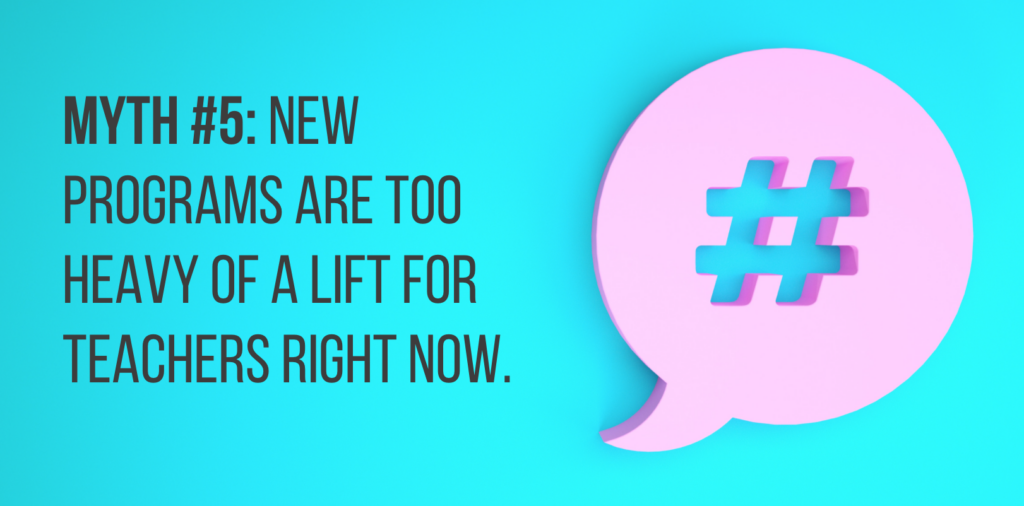
It’s no surprise that teachers are tired, stressed, and feel the weight of the last two school years. And no one wants to add more to teachers’ plates. This is why schools are choosing to integrate turnkey programs now more than ever. Providing teachers with lessons that are completely developed, engaging for students, and proactively addressing real-time topics make teachers’ lives easier. Instead of spending their time building content or dealing with student issues, they can lean into the lessons and open meaningful dialogue with their students. Teachers feel the challenge of supporting students lifted and discover a new way to connect with their students.
My mentor once wisely advised, “There is no perfect time to launch something new, and there will always be excuses not to. Don’t let perfection get in the way of action.” More than ever, our students need us to take action. Waiting until a new school year or for full buy-in only enables students’ challenges to grow. When we bust these five myths, we can fully support students when they need it the most — right now.
Andrea Jenkins is a TCEA 2022 presenter leading a session on Reimaging SEL to Win Over Students and Address Social Media, Current Events, and Well-Being. Andrea is a team member at The Social Institute (TSI) which provides a unique, gamified platform. TSI uses a positive approach to supporting students’ digital citizenship skills and social media navigation. Check out this #WinatSocial preview to learn more about TSI’s social media education program for schools.

